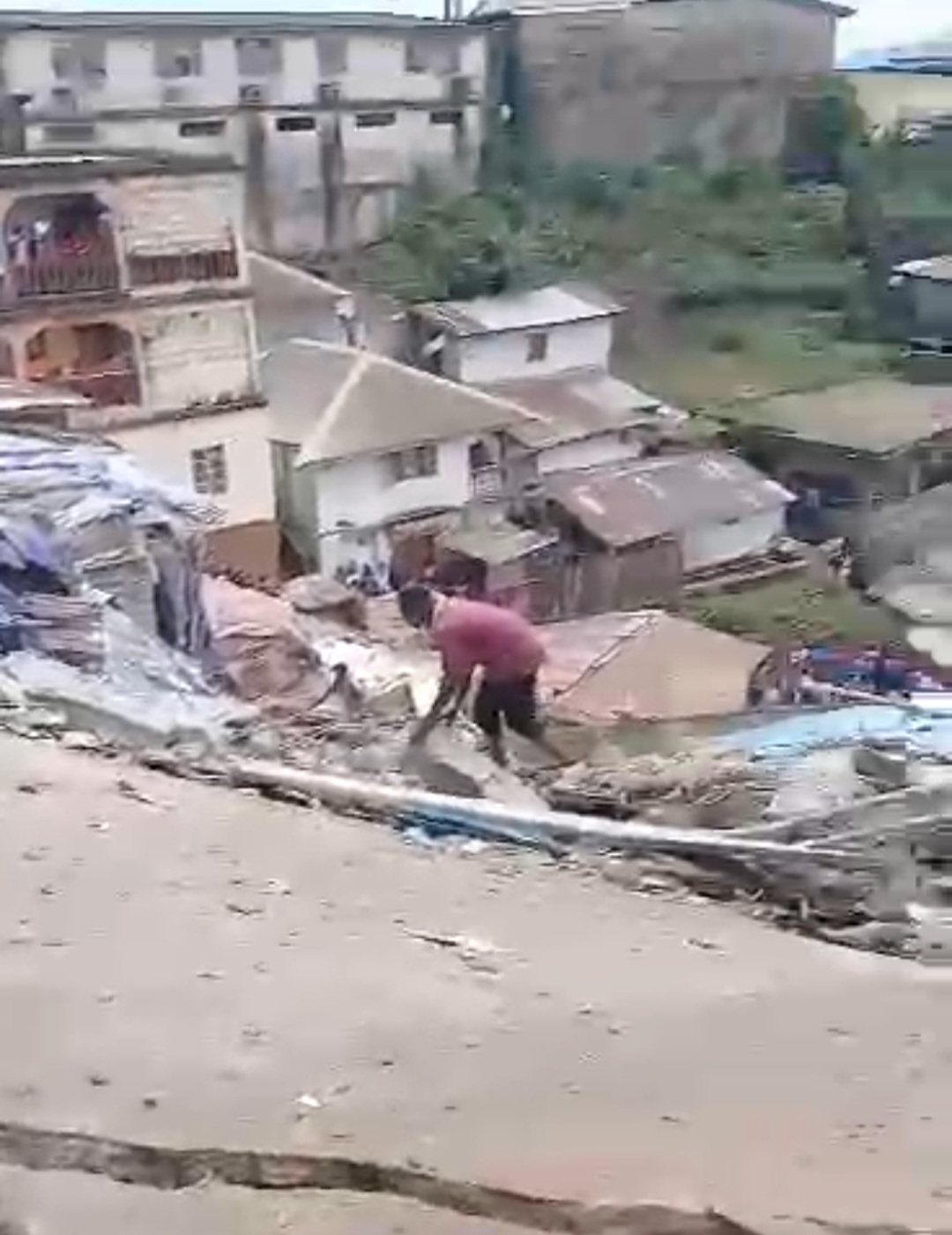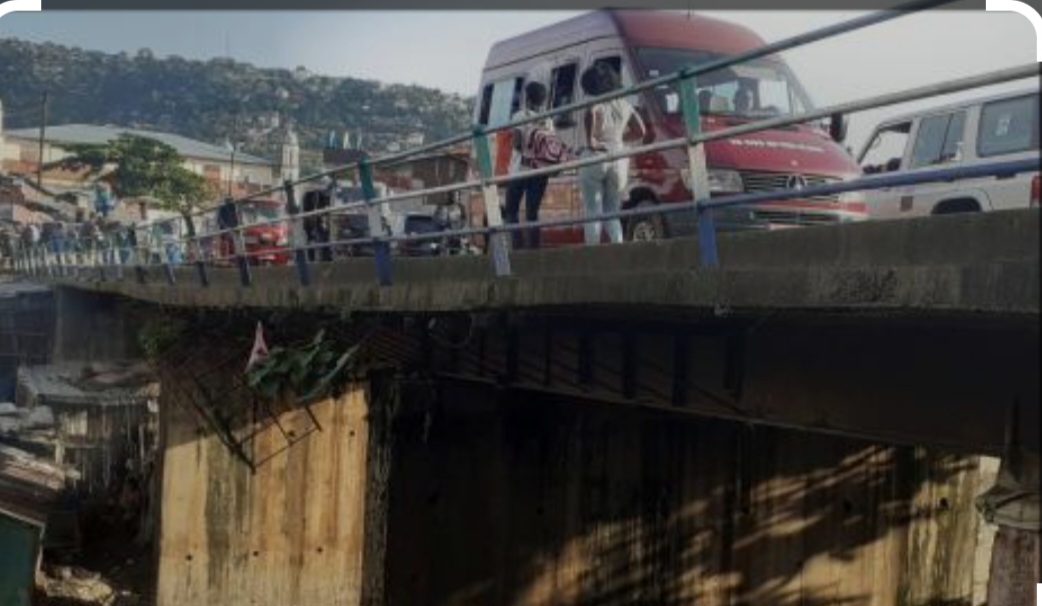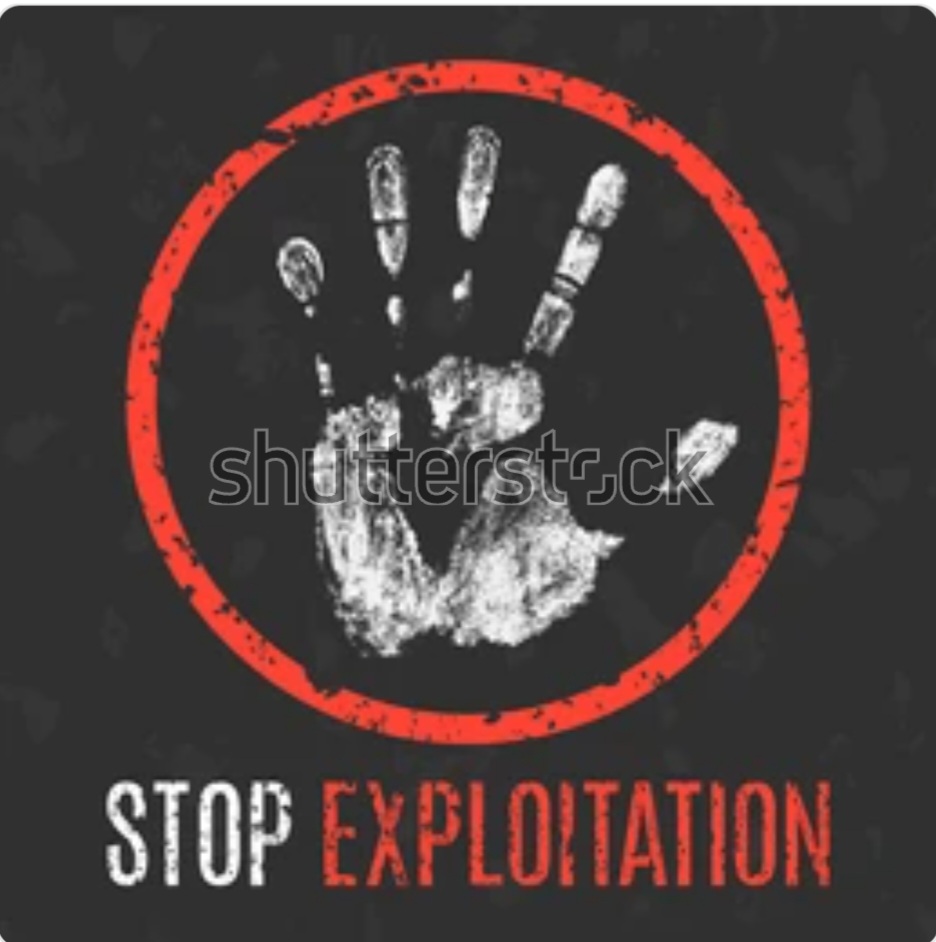By: Elizabeth A Kaine
The recent collapse of a four-story building at Shell New Road in Freetown, Sierra Leone, is a stark reminder of the deeper issues plaguing our construction industry. This is not an isolated incident, but rather a symptom of a larger problem that has claimed lives and livelihoods in the past.
We have seen it before – the collapse of buildings, bridges, and other infrastructure, resulting in devastating consequences. Yet, we seem to be stuck in a cycle of tragedy and finger-pointing, without addressing the root causes.
The blame lies not only with the building contractors and suppliers of substandard materials but also with the regulatory bodies tasked with ensuring safety standards. Their failure to enforce strict building codes and conduct regular inspections has created an environment where negligence and recklessness thrive.
We need to take a hard look at our construction industry and ask tough questions. What is driving this culture of negligence? Is it greed, lack of expertise, or a combination of both?
The government must take decisive action to address these issues. We need stricter regulations, regular inspections, and harsh penalties for those who flout safety protocols.
The owner of the building, who has likely invested their life savings into the structure, is now left to pick up the pieces. The emotional toll of watching one’s property crumble, coupled with the financial loss, is devastating. In a country where economic opportunities are scarce, this loss can be crippling.
Furthermore, the displaced residents are now faced with the daunting task of finding alternative accommodation in a market where affordable housing is a luxury. The government must recognize the urgency of this situation and provide support to those affected.
Sierra Leone has already suffered greatly from natural disasters such as fire incidents, flooding, and mudslides, which have claimed countless lives and destroyed homes. The collapse of this building is a stark reminder that we cannot afford to add human error to the list of tragedies that befall our nation.
The collapse of this building has simply added salt to injury, exacerbating the suffering of a nation still reeling from past tragedies. It is a harsh reminder that our struggles are far from over and that we need to work together to create a safer, more resilient society.
This tragedy also has far-reaching implications for our economy. If investors and international partners do not feel confident in the safety and stability of our infrastructure, they will be hesitant to invest in our country. This will have a ripple effect, impacting businesses such as hotels, restaurants, and others that rely on foreign investment and tourism.
The collapse of this building sends a worrying message to potential investors and partners: Sierra Leone is not a safe place to do business. This perception can have devastating consequences for our economy, leading to a decline in investment, tourism, and economic growth.
The government’s response to this tragedy will be a testament to its commitment to protecting human life and dignity, as well as its ability to create a conducive business environment. We urge the authorities to take immediate action to address the housing crisis, ensure safety standards, and restore confidence in our infrastructure.
The people of Sierra Leone deserve better. We deserve safe and affordable housing, a thriving economy, and a government that prioritizes our well-being. Let us work together to create a safer, more compassionate society that attracts investment and promotes economic growth.






